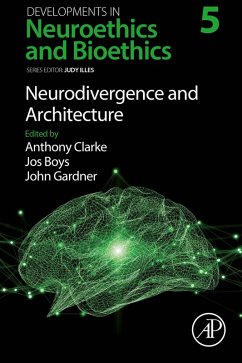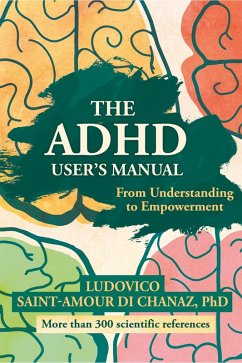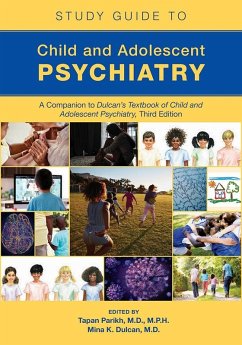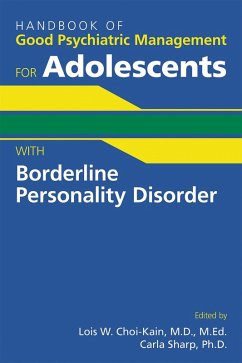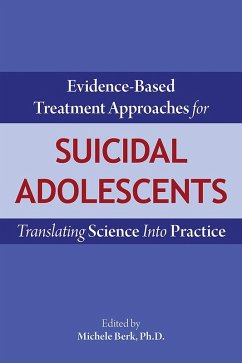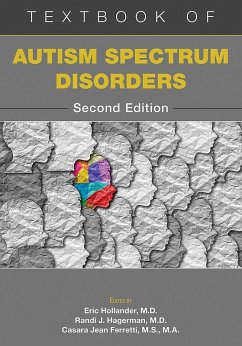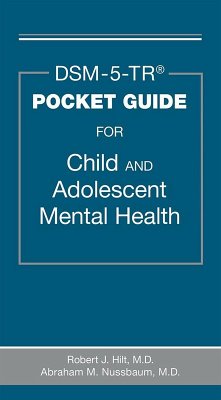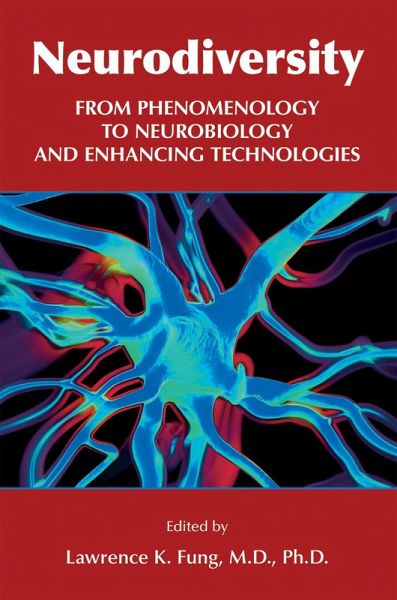
Neurodiversity (eBook, ePUB)
From Phenomenology to Neurobiology and Enhancing Technologies
Redaktion: Fung, Lawrence K.
Versandkostenfrei!
Sofort per Download lieferbar
34,95 €
inkl. MwSt.
Weitere Ausgaben:

PAYBACK Punkte
17 °P sammeln!
Neurodiversity: From Phenomenology to Neurobiology and Enhancing Technologies is an introduction to the strengths-based model of neurodiversity (SBMN), designed to integrate and build on existing theories of positive psychology, positive psychiatry, multiple intelligences, and developmental psychology and to apply them to devise strengths-based assessments and interventions for neurodiverse individuals. Because the field is in its infancy, there are few authoritative resources for clinicians and educators who wish to understand their neurodiverse patients and students and acquire up-to-date st...
Neurodiversity: From Phenomenology to Neurobiology and Enhancing Technologies is an introduction to the strengths-based model of neurodiversity (SBMN), designed to integrate and build on existing theories of positive psychology, positive psychiatry, multiple intelligences, and developmental psychology and to apply them to devise strengths-based assessments and interventions for neurodiverse individuals. Because the field is in its infancy, there are few authoritative resources for clinicians and educators who wish to understand their neurodiverse patients and students and acquire up-to-date strategies for supporting them in daily life. This book, edited by one of the foremost experts on neurodiversity and drawing on the knowledge of a stellar group of contributors, explores social models of disability as the starting point for strengths-based approaches to neurodiversity, translating them into approaches to support, educate, and enable people with neurodifferences to function successfully in educational and work environments.
Down-to-earth, accessible, and intended for a diverse audience, the book's assets are many: . The benefits of SBMN to autistic individuals are addressed in-depth, including assessment based on character strengths and specific talents, as well as interventions targeting not only these individuals but also families, organizations, and society.. Employment, a key trait enabling independence and self-determination, has heretofore been difficult for neurodiverse individuals. The twin challenges of training, employing, and retaining neurodiverse staff and readying candidates for the labor market are discussed, with emphasis on innovative programs and strategies. . The chapter on dyslexia examines the dichotomy between the challenges dyslexic people face and their extraordinary abilities, redefining what it means to be dyslexic and recognizing that dyslexia is more than a reading issue, it is a way of interacting with the world.. Case examples help readers understand each chapter's critically important concepts. These examples are of both individuals, such as a neurodivergent college student struggling with "big picture" thinking, and programs, such as the Autism at Work program implemented by the software company SAP, which has led to remarkable productivity.. Other features include recommendations for educators, clinicians, and other professionals; key concepts; discussion questions; and suggested readings. These ensure that the reader gets the most out of the material and provide guidance for locating additional information.
Positive, substantive, and eminently useful, Neurodiversity: From Phenomenology to Neurobiology and Enhancing Technologies aims to change our culture to one that not only embraces neurodiversity but promotes it as a necessary societal value.
Down-to-earth, accessible, and intended for a diverse audience, the book's assets are many: . The benefits of SBMN to autistic individuals are addressed in-depth, including assessment based on character strengths and specific talents, as well as interventions targeting not only these individuals but also families, organizations, and society.. Employment, a key trait enabling independence and self-determination, has heretofore been difficult for neurodiverse individuals. The twin challenges of training, employing, and retaining neurodiverse staff and readying candidates for the labor market are discussed, with emphasis on innovative programs and strategies. . The chapter on dyslexia examines the dichotomy between the challenges dyslexic people face and their extraordinary abilities, redefining what it means to be dyslexic and recognizing that dyslexia is more than a reading issue, it is a way of interacting with the world.. Case examples help readers understand each chapter's critically important concepts. These examples are of both individuals, such as a neurodivergent college student struggling with "big picture" thinking, and programs, such as the Autism at Work program implemented by the software company SAP, which has led to remarkable productivity.. Other features include recommendations for educators, clinicians, and other professionals; key concepts; discussion questions; and suggested readings. These ensure that the reader gets the most out of the material and provide guidance for locating additional information.
Positive, substantive, and eminently useful, Neurodiversity: From Phenomenology to Neurobiology and Enhancing Technologies aims to change our culture to one that not only embraces neurodiversity but promotes it as a necessary societal value.
Dieser Download kann aus rechtlichen Gründen nur mit Rechnungsadresse in A, D ausgeliefert werden.




